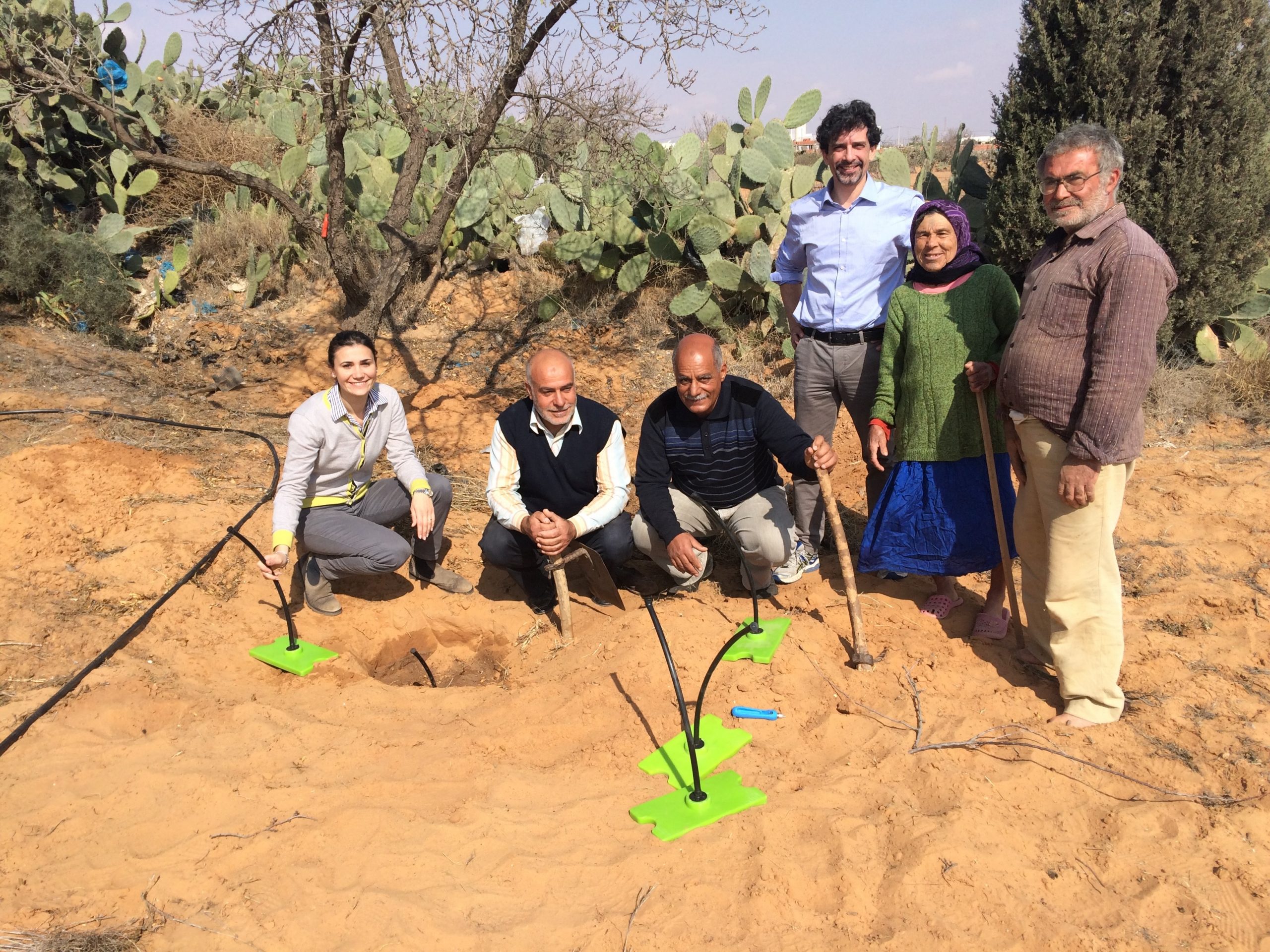 Last winter has been among the driest in Tunisia since decades, and its negative impact on yields is yet to come. In the central and southern regions of Sfax, Gafsa and Mahdia, the vast majority of agricultural production relies mainly on rainfalls. Due to climate change, local small-scale farmers are facing droughts and soil degradation, which threaten the traditional production of olives, almonds and pistachios.
Last winter has been among the driest in Tunisia since decades, and its negative impact on yields is yet to come. In the central and southern regions of Sfax, Gafsa and Mahdia, the vast majority of agricultural production relies mainly on rainfalls. Due to climate change, local small-scale farmers are facing droughts and soil degradation, which threaten the traditional production of olives, almonds and pistachios.
The Buried Diffuser (BD), a Tunisian patented device for underground drip irrigation, could help smallholders adapting to climate change. By adopting the BD, Tunisia’s smallholder farmers could cope with water scarcity, reducing agricultural water consumption by 30% compared to a conventional drip irrigation system, and doubling their production.
As part of the project “The Buried Diffuser: an underground water-irrigation system” activities on the field, in March 2016, ICU – Institute for University Cooperation and Dr. Chahbani held informative and demonstrative installations. Farmers and technicians, among whom many were women, attended the events.
One of those was Tunisia. She is an old woman who looks after the fields of many farmers in the rural areas of Sfax. Proud of her name, she is aware of the need of Tunisia to exploit innovations and take on rural development.



